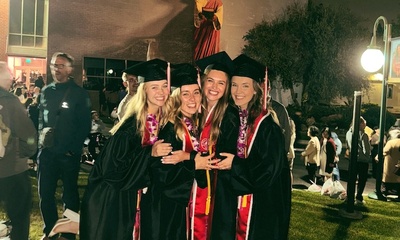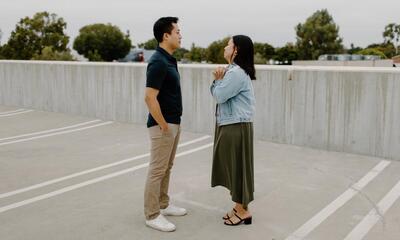The Science of Making and Keeping Friends (Part 2/3)

What causes us to gravitate towards certain people but not others? Do the friends we hang around with really shape who we become? In today's blog, Dr. Chris Grace explains how simply living near someone or running into them repeatedly can foster a close friendship.
“Show me your friends and I will show you your future.” —Unknown
The above quote can be rather sobering, but it certainly rings true. Who you hang around and who you make friends with will shape who you become. It makes me cringe when I think back over some of my earlier friendships!
Researchers in the field of social psychology have been studying friendships for a long time, and they have found that there are important factors influencing their formation. For example, many people believe in a common theory of friendship that is not true. Such a theory (known as the Simple Theory of Liking) says that I am attracted to another person and I am friends with them because he or she is witty, funny, and kind. This commonly assumed theory seems accurate and intuitive. We are attracted to people for their special qualities, like being wise or outgoing, but research does not bear this out. Instead, they have found that we like those we associate with good feelings, we like those who reward us, and those who pay attention to us! This is known as the Reward Theory of Attraction, and it is the more accurate theory. Thus, I like another person because they make me feel heard, or understood, or paid attention to. It is also called reciprocity.
Other key findings show that the closer I live near to someone, i.e., our geographical nearness or proximity, the greater chance of becoming friends. Functional distance is also important, meaning that I can work or live on the same floor as someone but never see them because we use different entrances or elevators. And while I live or work on a different floor from another person, our schedule and route to and from home or school or work are similar, and we run into each other all the time. This type of greater exposure (called the mere exposure effect) has been shown to increase our liking and attraction for people (and novel stimuli) after repeated exposure. A great example is that people tend to like a photo of themselves that is the mirror image, because that is what they see every time they look in a mirror, while friends and family like the non-mirror image because it is what they are used to seeing. Try it and see for yourself!
Of course, the characteristics of the other person are still important. Highly rated qualities are people we find attractive, intelligent and competent, and who have pleasant personality characteristics. Our own characteristics are important as well, but especially our self-perceptions (I am worthy of a friendship, I am trustworthy, etc.) and our self-esteem (I am lovable, I am a good person, etc.). Also, the closer our belief and values align, the more likely we are to stay in a friendship.
Like C.S. Lewis once said, “…Affection (friendship) is responsible for nine-tenths of whatever solid and durable happiness there is in our lives….It does not expect too much, turns a blind eye to faults, revives easily after quarrels.”
In sum, great friendships take work, and often last when they provide us positive feelings that we associate with them. Great friends have been found to:
1. Show affection in ways meaningful to each other.
2. Have fun, laugh, and cry with each other.
3. Show genuine interest in each other.
4. Are in synchrony with each other and feel compatible.
5. Validate (and rarely judge) each other’s feelings/thoughts
Work on these, and the making and keeping of friendships will be something you too will be blessed with.




